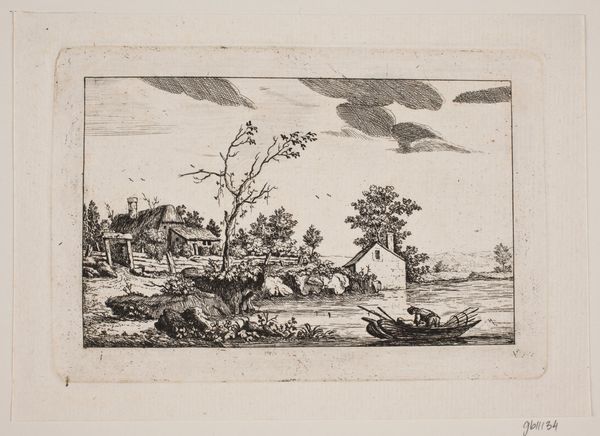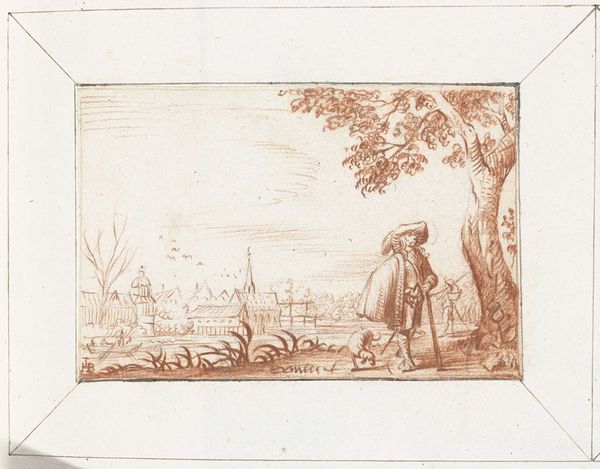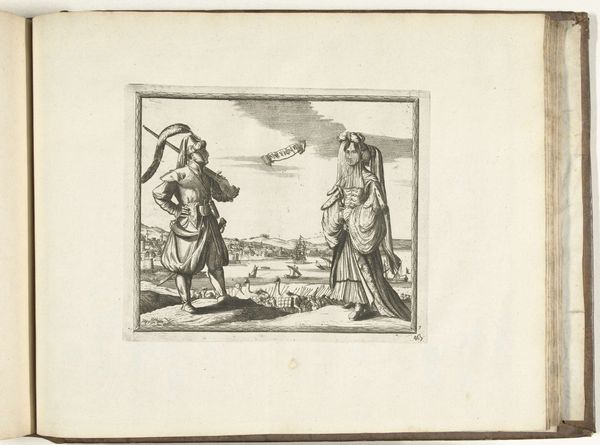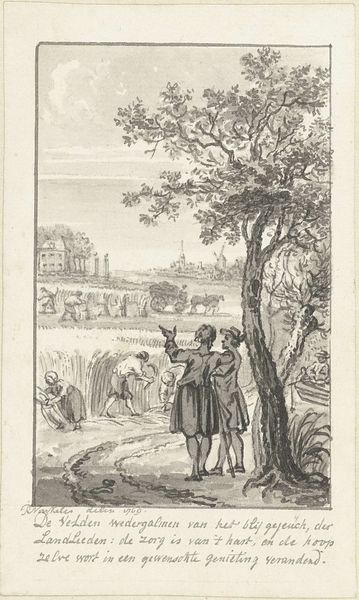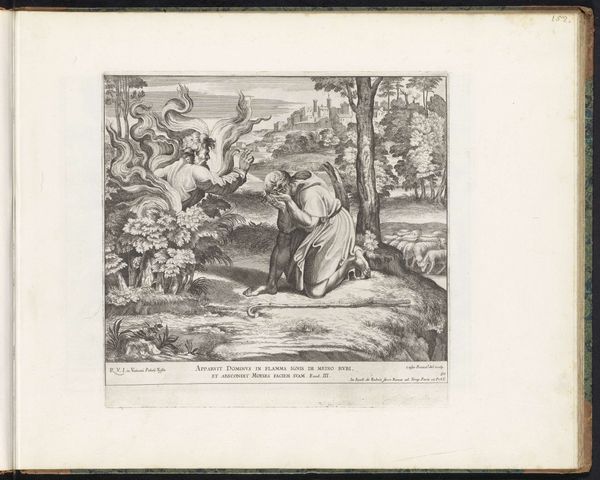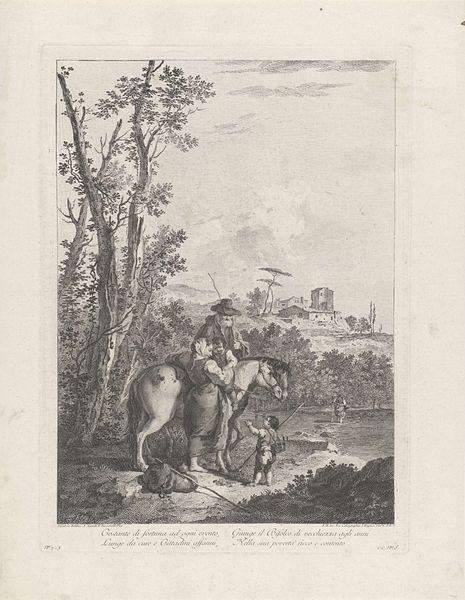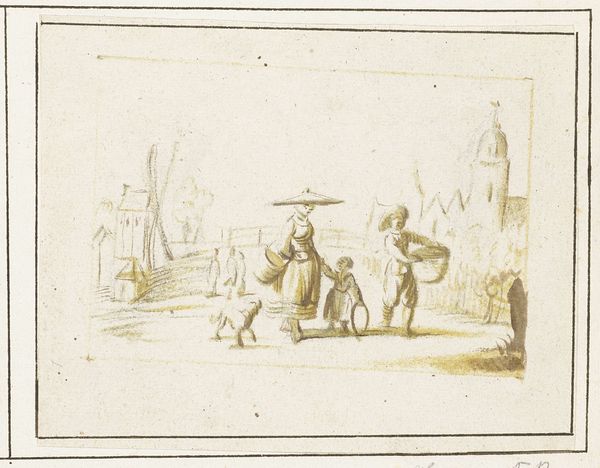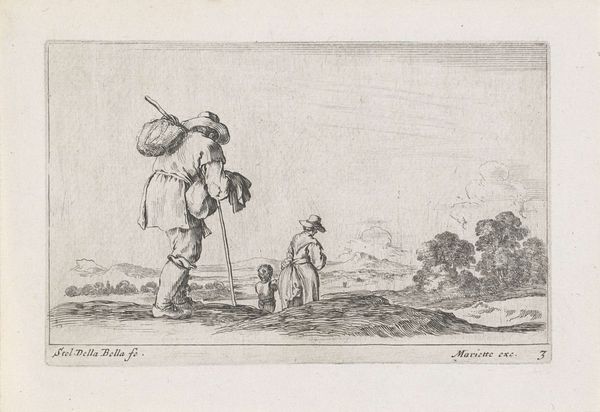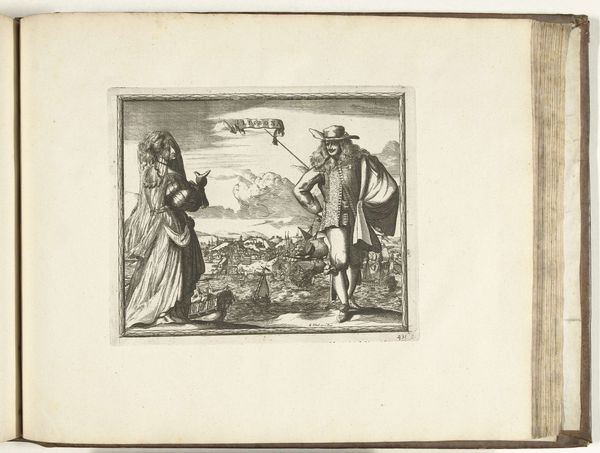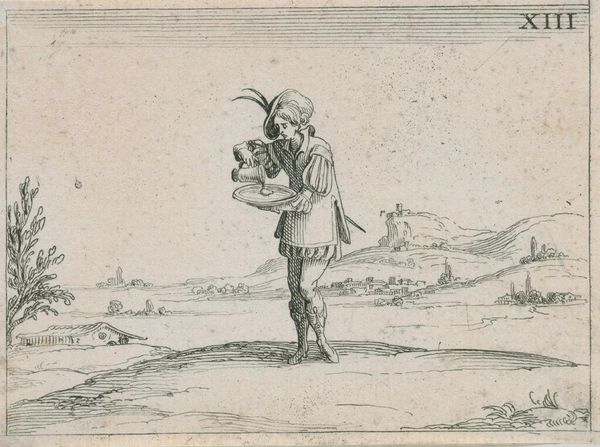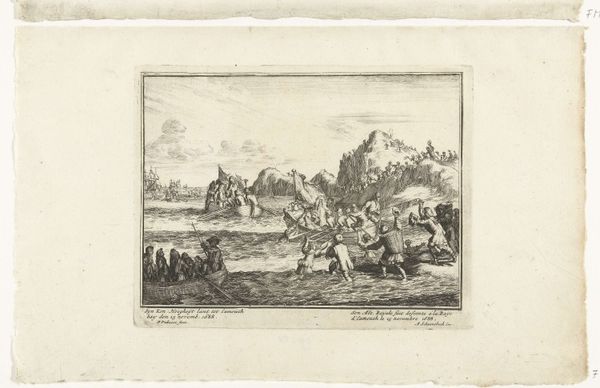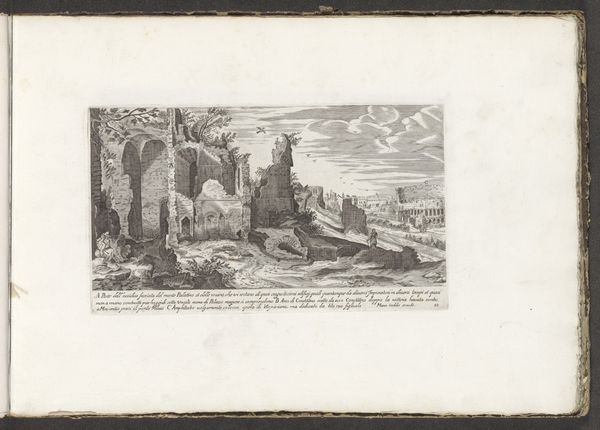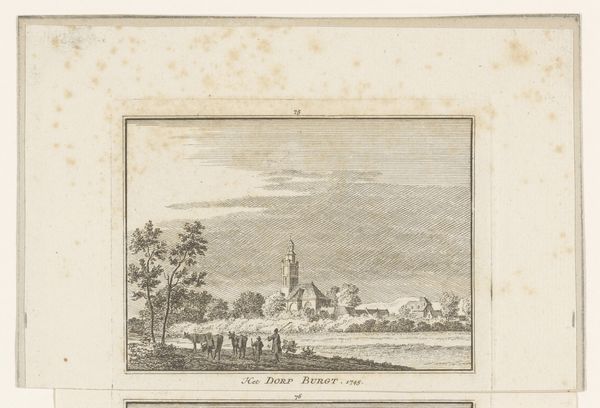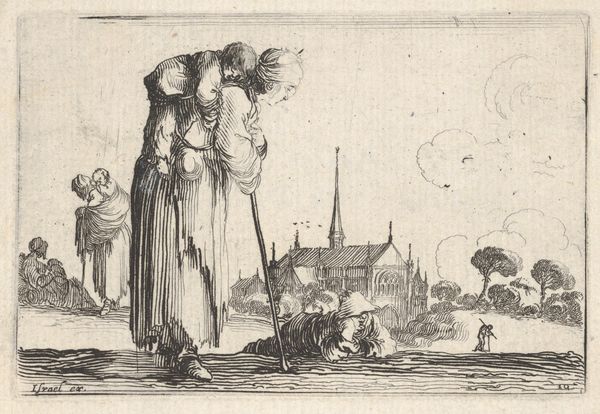
drawing, ink, pen
#
drawing
#
baroque
#
landscape
#
ink
#
pen-ink sketch
#
pen work
#
sketchbook drawing
#
pen
#
watercolour illustration
Dimensions: height 243 mm, width 360 mm
Copyright: Rijks Museum: Open Domain
Curator: Oh, I find this little pen-and-ink drawing so captivating! It's called "Monk Praying Before a Crucifix by a River," thought to be from around 1643 to 1687. What strikes you first about it? Editor: The quietness. There’s such an overwhelming feeling of solitude in this composition, even though the landscape stretches out in the background. The monk is totally absorbed. It’s less about grand pronouncements, more a study of inward devotion, a real feeling of surrender. Curator: Exactly. Notice how the landscape, while beautifully rendered, is muted, almost dreamlike. Gesina ter Borch directs our focus entirely to the monk and the crucifix, making them the emotional core of the piece. Editor: The crucifix itself is so interesting. Placed on a somewhat crude tree trunk— it looks like a direct connection to nature, less adorned, very raw and visceral. Almost as if the monk sought connection to something true rather than traditional authority. Curator: A wonderful interpretation! Think about what the image of the crucifix represents: suffering, sacrifice, redemption. The monk isn’t merely praying; he's grappling with these monumental concepts. I feel it mirrors the introspection common in baroque art. Editor: It really highlights how symbols work— the power they accumulate over time. A crucifix is instantly loaded. It isn't *just* two crossed pieces of wood, right? We read all those layers of meaning into such a simple shape. It’s amazing to see how even tiny details of setting contribute— river, landscape... Curator: Agreed. Ter Borch clearly composed with intention, didn't she? The positioning near a flowing river; suggests spiritual cleansing and renewal too. Editor: I think also it has echoes in a sort of "memento mori" theme... He's kneeling there as if to contemplate his mortality within a much grander scale, natural surrounding. But yes it certainly speaks to me now on multiple levels... Curator: Indeed, from the ink lines suggesting birds far above to the weight in the monk's bowed form. Any closing thoughts from your side? Editor: Just the enduring strength of simplicity, really. How effectively a basic medium carries so much emotional complexity when wielded with sensitivity, and how potent symbols remain in visual storytelling. Curator: Yes—the evocative restraint in her work really allows those emotional and symbolic undercurrents to flow. I see in it, too, a whisper from centuries ago, a testament to quiet strength found in solitude.
Comments
No comments
Be the first to comment and join the conversation on the ultimate creative platform.
